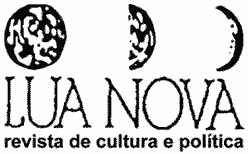This paper intends to present an approach to Edward Said's work and to give some light to his unexpected theoretical contributions for International Politics. Beyond the effort of updating the concept of imperialism, central in his premises, five others themes among his books interest us directly. The first one is the present hegemonic power exerted by the USA government since the Second World War, that interrogates us about the possibilities to build an effectively democratic world order. The second is about the national question, where the author points out the risks of an unprepared national conscience or still depreciated after the fights for independence and liberation. The third is his anger against the stereotypes and prejudices to the Arab-Muslim civilization, also linked to the occidental ignorance about their culture. Fourth, the visibility that he gives to the colonial and post-colonial intellectual contributions, from authors as Eqbal Ahmad (Pakistan), Ngugi Wa Thongo (Kenya), Ali Shariat (Iran), Wole Soyinka (Nigeria), C. L. R. James (Trinidad-Tobago), José Martí (Cuba), Ranajit Guha (India), among others.
Edward W. Said; Critical theory; International politics; Imperialism and culture; Nationalism; Post-colonial rhetoric
